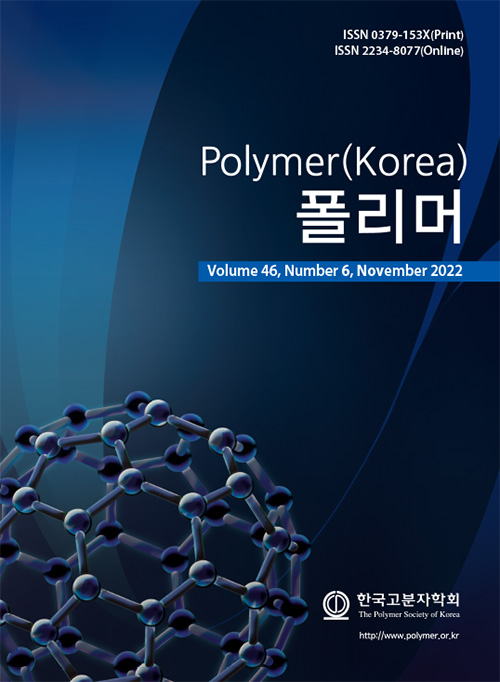- Preparation, Characterization of Chitosan-Coated/Uncoated Boron Nanoparticles and In-Vitro Evaluation of Their Antimicrobial Effects
Rukiye Sevinç Özakar# , Mehmet Semih Bingöl*, Mehmet Cemal Adıgüzel**, and Emrah Özakar#,†

Department of Pharmaceutical Technology, Faculty of Pharmacy, Atatürk University, 25240 Erzurum, Türkiye
*Eastern Anatolia High Technology Application and Research Center (DAYTAM), Atatürk University, 25240 Erzurum, Türkiye
**Department of Microbiology, Faculty of Veterinary Medicine, Atatürk University, 25240 Erzurum, Türkiye- 키토산 피복/비피복 붕소 나노입자의 합성 및 분석, 그리고 항균효과 체외평가
Reproduction, stored in a retrieval system, or transmitted in any form of any part of this publication is permitted only by written permission from the Polymer Society of Korea.
Many studies have reported that the widespread use and abuse of antibiotics have led to the emergence of multidrug-resistant bacteria, a significant weakness of current antibiotic therapy. Therefore, the present scenario motivates scientists to develop biocompatible nanoparticles (Nps) that apply better antibacterial effects and biocompatible properties, including cost-effectiveness. The aim of this study was to evaluate the antibacterial effect of boron nitride (BN) and chitosan coated BN-Nps using different surfactants. In this regard, the potential antibacterial activity of prepared chitosan-coated and non-coated BN-Nps have been investigated against nine reference bacteria strains. BN-Nps and chitosan-coated BN-Nps were successfully developed and characterized. Nps determined that showed high zeta potential values (between -20.1 mV and +59.2 mV). Antimicrobial resistance results indicated that formulations of BN-Nps with negative zeta potential were found to be effective compared to chitosan-coated BN-Nps with high positive zeta potential. These findings emphasize the future availability of BN-Nps formulation providing antibacterial activity.
Keywords: antibacterial activity, boron nitride, chitosan, nanoparticles, zeta potential.
- Polymer(Korea) 폴리머
- Frequency : Bimonthly(odd)
ISSN 0379-153X(Print)
ISSN 2234-8077(Online)
Abbr. Polym. Korea - 2023 Impact Factor : 0.4
- Indexed in SCIE
 This Article
This Article
-
2022; 46(6): 709-721
Published online Nov 15, 2022
- 10.7317/pk.2022.46.6.709
- Received on Jun 30, 2022
- Revised on Sep 14, 2022
- Accepted on Sep 18, 2022
 Correspondence to
Correspondence to
- Emrah Özakar
-
Department of Pharmaceutical Technology, Faculty of Pharmacy, Atatürk University, 25240 Erzurum, Türkiye
- E-mail: emrahozakar@atauni.edu.tr









 Copyright(c) The Polymer Society of Korea. All right reserved.
Copyright(c) The Polymer Society of Korea. All right reserved.